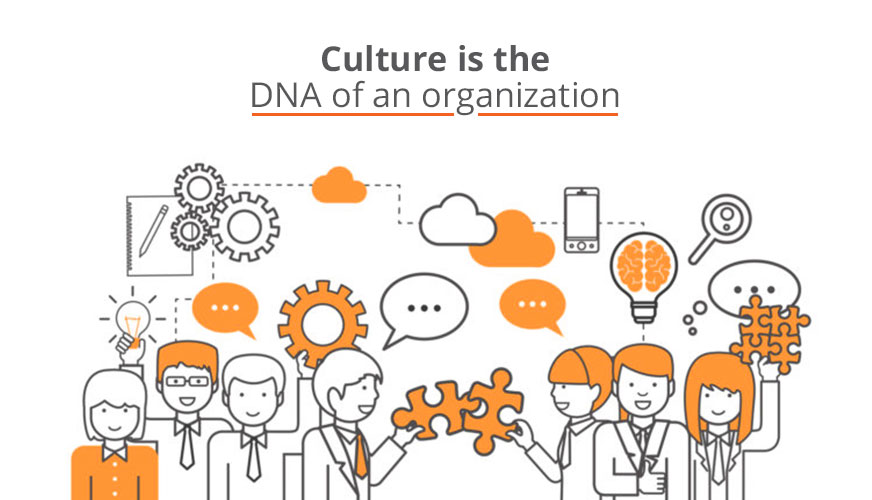Today organizations are vying to be rated as “a good place to work” and the most crucial elements are the brand value of the organisation and the remuneration paid to its employees. But they seem to ignore yet another important factor which plays a deciding role, which is the work culture of the organization.Every organization has its way of functioning and carrying out day-to-day activities i.e. their work culture. It aids in retaining and creating a sense of belonging to the organisation. Right from the type of clothes employees wear to how approachable the top management is; everything forms a part of this culture.How you ‘do things’ has a large impact on:
• How employees behave
• How goals are set and met
• How loyal or sincere your employees are
• How a crisis is managed
• Who do you look up to for inspiration and guidanceWhere it comes from
Organizational culture is not just for the employees. If you leave it at that you have missed out an opportunity to create a unique working atmosphere. The employees look to their superiors: their supervisors, managers and top management to set the example.
Culture is the DNA of an organization and it is passed down from the top management and must be inculcated into every employee: engineer, executive or third-party partners
Why it matters
Organizational culture defines:
1. Employee interaction in the workplace
2. Encourages healthy competition among employees
3. Predefined policies that give a sense of direction to employees at the workplace
4. Helps in creating a company’s brand image
5. A common platform for employees coming from varied backgrounds – gives them a sense of belonging and equality
6. Clear roles and responsibilities
7. Extracts the best out of the employees by encouraging collaborations
The culture of the company must be built keeping the vision and mission in mind. It must be all-pervasive. It helps in creating an identity for the company and acts as a go-to point during crisis or innovations. It is often a factor potential employees consider before joining a new organization.



